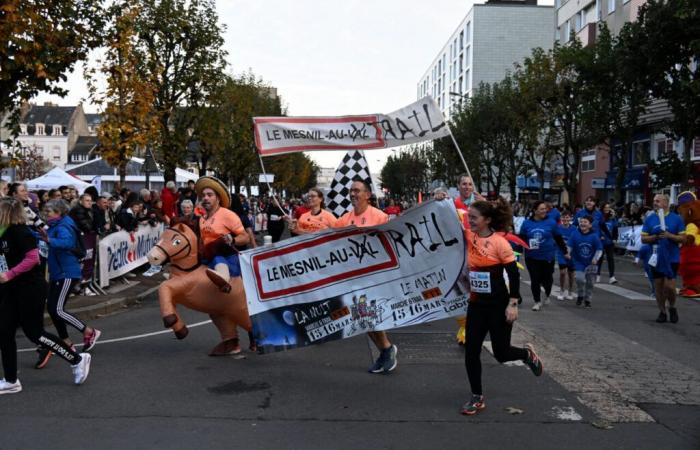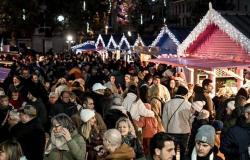Par
Baptiste Hue
Published on
Nov. 22 2024 at 10:50 a.m
See my news
Follow La Presse de la Manche
After ten days of voting, here is the results of our costume competition organized on the sidelines of the Foulées de La Presse de la Manche.
1st: Cours Forrest
On our website, he was in the lead from the start and never let up!
With his very realistic and very relevant Forrest Gump disguise, which fits his life as atireless runnerStéphane Tanguy seduced his electorate to win a large part of the votes.
It's also because I told my colleagues to vote for me. It's going to cost me a lot of pastries!
L’aformer professional footballerwho notably passed through SM Caen before making the heyday of AS Cherbourg, would like to thank La Presse de la Manche to “valorize people who dress up” at Les Foulées.
“It’s very much in the spirit of this day! », sums up the Tourlaville resident, impatient to share a good meal with his partner Pascaline at Le Plouc 2. When it's free, it's even better!
2e : Mouette and sea
Parading through the streets of Cherbourg in a seagull costume, the emblem of Cherbourg: it was obvious that this anonymous “competitor” (without a “chip” bib) was going to receive public support cotentinois.
After a long investigative workwe just know that it is abouta student of Esix, the engineering school of Cherbourg, an establishment which also won the participation prize in the category “high schools and universities. »
At the restaurant, we imagine that he will share his prize and play “seagull” with his friends…
3rd: The Dark Hero
Loyal among the faithful of the Foulées, Ludovic Quentin achieved the double this year with a participation in the Regional under the colors of AS Tourlaville, at full speed, then a “stroll” at the back of the class on the Populaire, at the small trotting, with her joyful companions from Mesnil-au-Trail, the manifestation sportive biennale from Mesnil-au-Val.
Such a riot of energy deserved a good meal at the restaurant! On his inflatable horse and with his Mexican hat, the “Dark Hero” has indeed also marked the minds of our Internet usersbeating at the last minute the two “Flammes en roses”, last year’s winners.
“We will have a little celebration during the next Mesnil-au-Trail (March 15-16, 2025) to mark the occasion and highlight La Presse de la Manche which has the merit of making Cherbourg move! “, underlines the former cyclistwho assures that he will do “even better next year” for his November 11 disguise. It promises!
The winners of the costume competition as well as the winners of the various challenges (companies, schools, corporations, etc.) are invited to the Cherbourg-en-Cotentin town hall on Thursday, November 28, from 6:30 p.m., for the awards ceremony.
Follow all the news from your favorite cities and media by subscribing to Mon Actu.






